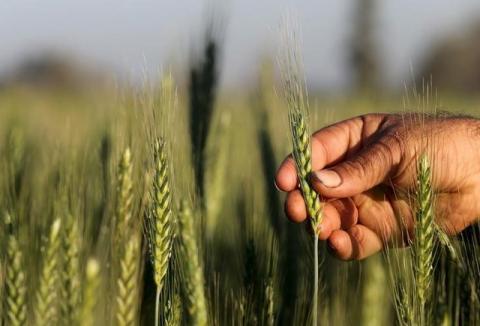Advertisement
Corruption in Egypt wheat sector widespread: Interior Ministry official
CAIRO (Reuters) - An Egyptian Interior Ministry official has warned that rampant corruption in the country's strategic wheat sector must be tackled, a local newspaper reported on Friday.
"We discovered a hacking of the system. We discovered huge sums," Al-Watan newspaper quoted Major General Hosni Zaki, an assistant to the Interior Minister and head of an intelligence unit that investigates supplies of commodities, as saying."If the crisis is not solved, leakage of subsidies will continue."
In March, Supply Minister Khaled Hanafi told Reuters the world's top wheat buyer was close to eradicating graft in the industry, defending the country's management of the system against criticism that it is vulnerable to corruption.
(Read the Reuters Investigates story that uncovered Egypt’s dirty wheat problem http://www.reuters.com/investigates/special-report/egypt-wheat-corruption/)
In 2014, President Abdel Fattah al-Sisi's government rolled out a system of smart cards designed to stop unscrupulous bakeries selling government-subsidized flour on the black market.
Zaki said that from January to April there were 210 cases of corruption due to hacking of the smart card programme, under which each family is provided with a plastic card enabling it to buy five small flat loaves of bread per family member a day.
He put the cost of that graft at 22.7 million Egyptian pounds ($2.56 million), and said it involved 2,017 smart cards.
"Unfortunately the punishment is very weak and is not proportionate to the size of the violations," said Zaki, referring to a fine of 500 Egyptian pounds. "We must strengthen the punishment."
He said workers in the company that runs the smart card system, traders and government employees had been arrested under a crackdown on corruption. Zaki did not elaborate.
The Interior Ministry spokesman was not available for immediate comment.
Challenging the Reuters story, Supply Minister Hanafi repeated his assertions that the system has saved millions of dollars in bread subsidies, reducing imports, and ended shortages that once prompted long queues outside bakeries across the country.
A Reuters spokeswoman said the news agency stood by its story following his comments.
Wheat has become a big issue in recent months because the stability of Egypt's supply chain has been threatened by an agricultural quarantine official's zero-tolerance policy on ergot, a common fungus.
The stakes are high for Sisi, who has promised to end graft, including irregularities in the wheat industry. Wheat shortages have sparked riots in the past. When Egyptians revolted against autocrat Hosni Mubarak in 2011 one of their most potent chants was "Bread, freedom and social justice".
The bread subsidy programme, which feeds tens of millions of poor Egyptians, is central to avoiding unrest.
(Writing by Michael Georgy; editing by Susan Thomas)



















Add new comment